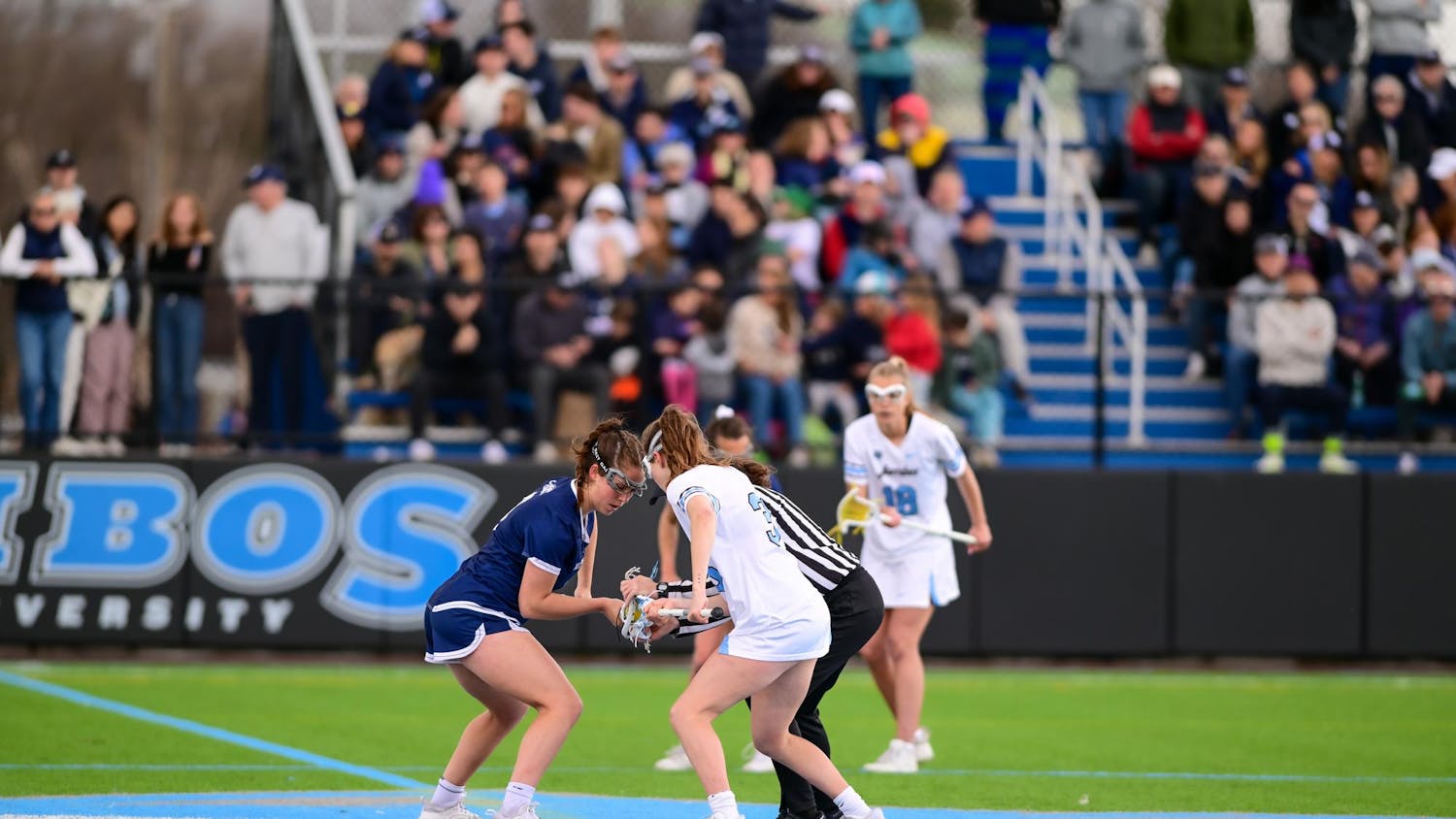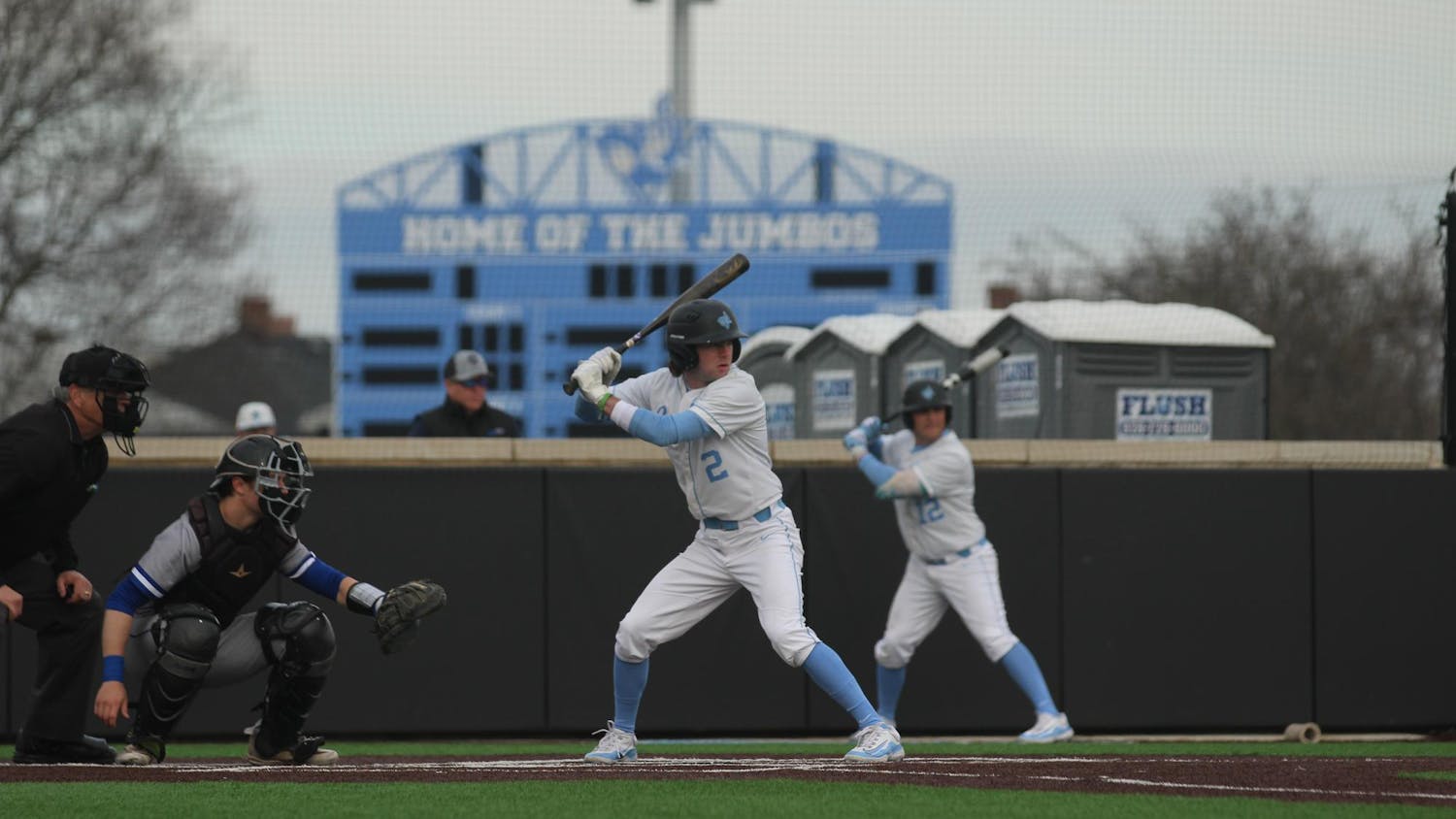While the Tufts athletics program sees hundreds of students pass through its doors every year, the handful of international students that represent the Brown and Blue across the country in various sports can go unnoticed.
Two of those individuals are rising juniors Mina Karamercan and Julia Keller, both of whom play for the women’s tennis team. The two share similar athletic backgrounds, having played tennis from young ages. Though Keller, a native of Lidingoe, Sweden, had played tennis throughout her life, she was enamored by the prospect of playing in a completely different environment.
“In Sweden, universities are very different and there are no college sports, nor high school sports -- it’s very individual,” Keller said. “So coming to the States playing on a team was a dream for me because it’s just so different. You’re playing for the university and for the team, not just yourself.”
Both said part of their decision-making processes were influenced by their passion for the sport.
"For me, tennis is such an individual sport and you have to start so early; I played 16 years of tennis,” Keller said. “And to just quit after high school felt like giving [up] a part of myself, which I wasn’t ready to do, so this was a great way to continue it and four more years of highly competitive sports is worth it.”
Karamercan, who started playing tennis at seven in her native Istanbul, added that her family also influenced her decision.
“In Turkey, you can’t do school and tennis together, so there comes a point where you choose to play professional tennis or to just go to school,” Karamercan said. “That was difficult because I loved playing tennis but I wasn’t going to quit school to play tennis. My dad went to UVA and also played tennis, so he was a big influence on me ... and I just knew that I was going to come here to play tennis because it felt like the right thing to do.”
Both said the decision to play for Tufts was based on a combination of academic rigor and a connection with the program
“Tufts was such a great fit for me because it’s near a city, the tennis is really great, we’ve such a good program and the coach is really good.” Keller said.
For other athletes, their decision to join a Tufts team was also largely based on their passion for their sport, despite not being recruited. Sahana Karthik, a member of the Tufts women's squash team, is a rising junior from Singapore. In the past she participated in tournaments, including an international event in Malaysia. She was also part of a club in Singapore which played league matches every week. Upon earning admission to Tufts, Karthik had a conversation with the coaching staff to get involved to continue her love for the sport.
“[Playing for Tufts has] been good because when I came in as a [first-year] it was a nice community to build as well, because we’re very bonded as a team,” Karthik said. “And it’s also nice to be playing a sport and feel good representing Tufts in some way. It’s a proud feeling competing for a university in a sport that you like playing and something that you’re good at.”
Tufts also represented an opportunity for rising sophomore Singaporean, Nihal Pai, a member of the sailing team, to pursue one of his passions, though Pai had never competed for his high school.
“My family has sailed in the past casually, so I thought it might be a good experience just to try out and see what I could do with the little skills I had,” Pai said. “It seemed like a very popular sport over here, and I just wanted to get involved in an athletics team in some way.”
However, making that transition from playing sports in their local scenes to a collegiate setting can be challenging for international students.
“[When I first joined I was] obviously very intimidated, because the people who were recruited, they were amazing at what they do,” Pai said. “But the people on the team are very encouraging, they help you develop your skills and that feeling gradually faded over time.”
Karamercan had a similar experience with the tennis team.
“I really did feel [the difficult transition] last year, but I think being an international student in an athlete community, you assimilate a lot faster into the culture than non-athletes just because it’s a tighter community,” Karamercan said.
The recruitment process for international athletes for women’s tennis and sailing are similar. Prospective recruits often send their athletic experience and information to coaching staff to get noticed. For women’s tennis, showcases occur around the country for international students to demonstrate their abilities in front of coaching staff. Coach Kate Bayard of the women’s tennis team said that the showcases provide opportunities for coaching staff to get a sense of the way players compete.
The athletics program leaders also assist international students in making the transition process. This process, coach Ken Legler of the sailing team suggested, could be easier at Tufts because of a more significant international population on campus as compared to other schools. Bayard shared that she and her coaching staff constantly check in with the first-years, especially the international students, to ensure that their transition is smooth.
The responsibility of helping newer members, especially of the international community, to settle in also becomes a team project. Legler said the team does a lot to help welcome newer members, such as providing a welcome package, taping signs to their doors, or providing useful items such as chapstick to make them feel included and help them settle in.
“They’re part of a team right away, they are not only here to study, but here to take part in something as a group with common goals, and it’s pretty fun being on a team,” Legler said. “When you go to weekend competition and you put on your gear … with a big T on it, like everyone else on the team is wearing, and away you go.”
More from The Tufts Daily





